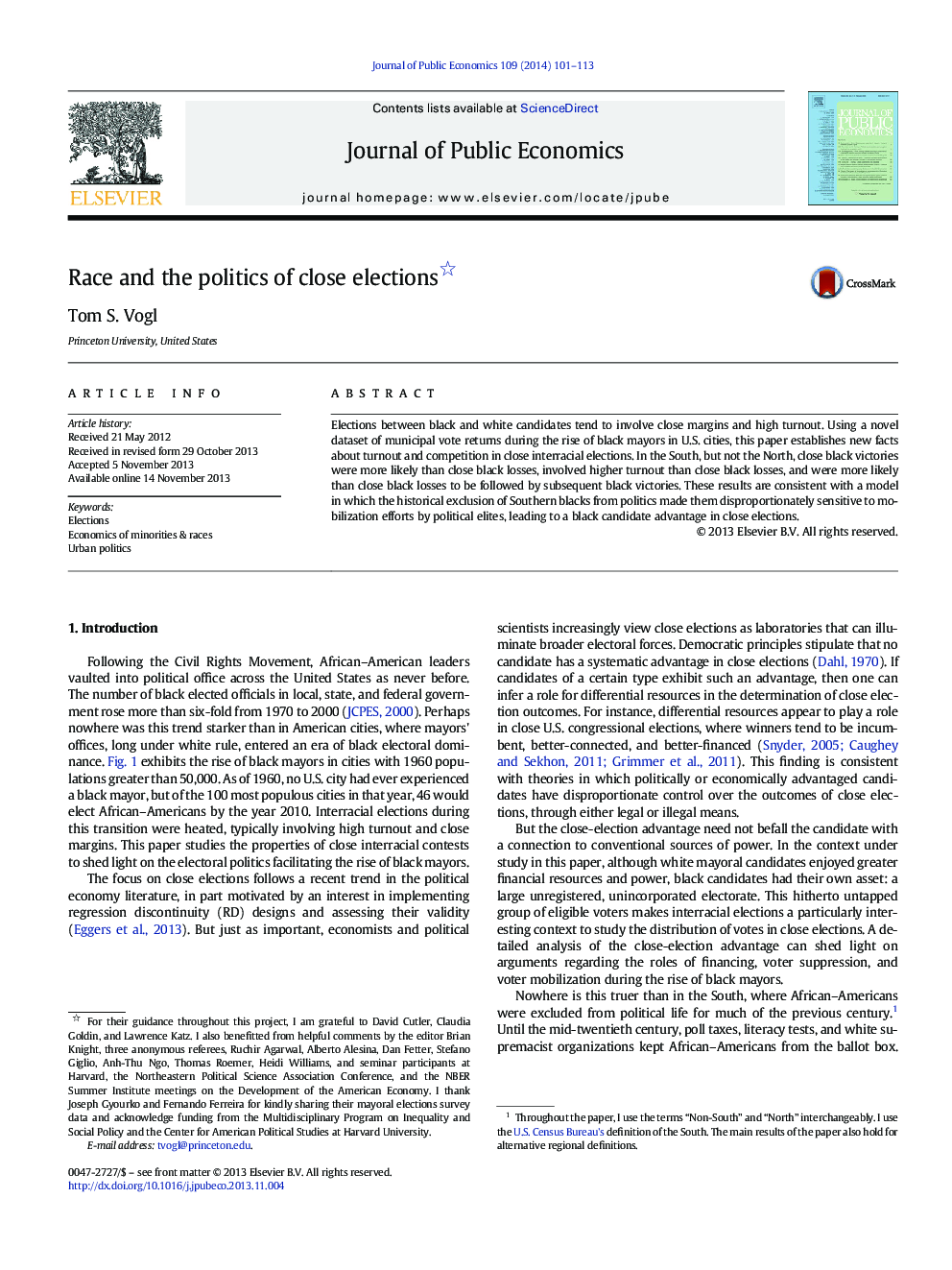| Article ID | Journal | Published Year | Pages | File Type |
|---|---|---|---|---|
| 968695 | Journal of Public Economics | 2014 | 13 Pages |
•This paper documents new facts about close interracial elections in the U.S.•It uses a novel dataset of vote returns from mayoral elections.•Three results hold for the South.•Close black victories were more likely than close black losses.•Close black victories involved higher turnout than close black losses.•Close black victories were more likely to be followed by subsequent black victories.•None of these results hold in the North.
Elections between black and white candidates tend to involve close margins and high turnout. Using a novel dataset of municipal vote returns during the rise of black mayors in U.S. cities, this paper establishes new facts about turnout and competition in close interracial elections. In the South, but not the North, close black victories were more likely than close black losses, involved higher turnout than close black losses, and were more likely than close black losses to be followed by subsequent black victories. These results are consistent with a model in which the historical exclusion of Southern blacks from politics made them disproportionately sensitive to mobilization efforts by political elites, leading to a black candidate advantage in close elections.
